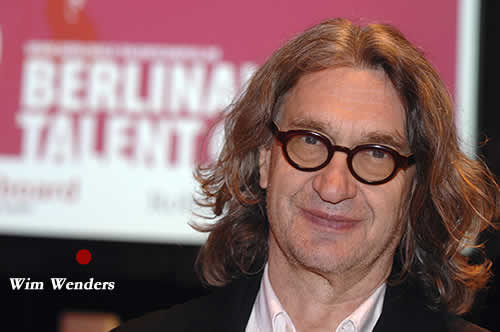 While the Berlinale Talent Campus brings together filmmakers who represent the future of cinema, this year’s Campus programme will also address the future look and feel of cinema. Legendary filmmaker Wim Wenders, director of masterpieces such as Wings of Desire, the Cuban music documentary Buena Vista Social Club and Paris, Texas will give a masterclass on his latest documentary Pina, a 3D dance film on the late German contemporary dancer and choreographer Pina Bausch, premiering in the Competition section. The main topic will be how 3D expands possibilities for storytelling, with film excerpts to illustrate how these new possibilities also encompassed new challenges for stereographer Alain Derobe, producer Gian-Piero Ringel and 3D producer Erwin M. Schmidt. The panel is moderated by Patrick Palmer and joined by Julian Pinn (Dolby) who will discuss the most recent developments in 3D technology (Monday, Feb 14, 6 pm, Cubix8).
While the Berlinale Talent Campus brings together filmmakers who represent the future of cinema, this year’s Campus programme will also address the future look and feel of cinema. Legendary filmmaker Wim Wenders, director of masterpieces such as Wings of Desire, the Cuban music documentary Buena Vista Social Club and Paris, Texas will give a masterclass on his latest documentary Pina, a 3D dance film on the late German contemporary dancer and choreographer Pina Bausch, premiering in the Competition section. The main topic will be how 3D expands possibilities for storytelling, with film excerpts to illustrate how these new possibilities also encompassed new challenges for stereographer Alain Derobe, producer Gian-Piero Ringel and 3D producer Erwin M. Schmidt. The panel is moderated by Patrick Palmer and joined by Julian Pinn (Dolby) who will discuss the most recent developments in 3D technology (Monday, Feb 14, 6 pm, Cubix8).
Just as sound changed the landscape of filmmaking, technology is changing audience behaviour and expectations – they want immersion and interaction. As audiences move from one platform to another, how does one develop stories and characters that can travel across screens and devices? The impact of new technologies coupled with an audience that has way more control over their media than ever before is affecting the art and craft of storytelling. In the “Indie Filmmakers Guide to Cross-Media” series on cross-media storytelling, experts like Michel Reilhac, the executive director of ARTE France Cinema, and other trendsetting pioneers will discuss with moderator Liz Rosenthal (“Power to the Pixel”) how to build and produce story worlds that span multiple platforms and engage audiences in powerful new ways (Monday, Feb 14, 2 pm, HAU2; Tuesday, Feb 15, 2 pm, HAU3 top floor; Wednesday, Feb 16, 11 am, HAU3 top floor).
“Too Good to Be True: Directing Reality” with Andres Veiel and Heddy Honigmann. Incorporating fictionesque elements in documentary films has enriched the genre tremendously and resulted in compelling storytelling taken from reality. Yet critics question reenactments, staging interviews or even adding music in documentary films. On the other side, fiction films that use a documentary approach have increased the intensity of storytelling. This panel features two outstanding filmmakers who use a unique filmic language in both their documentary and fictional work. Andres Veiel (Black Box BRD, Addicted to Acting) is a multiple award-winning director and is considered one of Germany’s leading documentary filmmakers. His feature film If Not Us, Who? is in competition at this year’s Berlinale. Peruvian-born and Amsterdam-based Heddy Honigmann (O Amor Natural, Forever) is a true master of the documentary form and her films possess a singular style and remarkable sensitivity. With a career that has spanned more than 20 years, her body of work includes documentary and fiction features and has garnered awards from festivals and praise from critics around the world, as well as provided inspiration for emerging and veteran documentary filmmakers alike. Honigmann and Veiel will discuss the extent to which directors can create their own filmic reality when making documentaries or use documentary elements when making fiction films (Tuesday, Feb 15, 11 am, HAU1).

